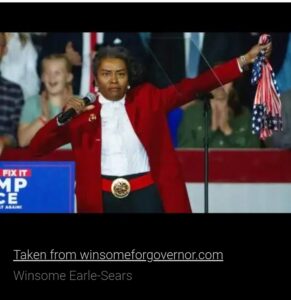
As the Virginia governor’s race heats up, Jamaica-born Winsome Earle-Sears is once again in the headlines. Many Jamaicans are proud to see one of their own rise to prominence in American politics — but pride and agreement are not the same thing.
While Earle-Sears was born in Jamaica, her political record and public positions reflect the priorities of the far American right: strong support for gun ownership, opposition to abortion in nearly all cases to include rape and incest, and a close alignment with president Donald Trump’s policy agenda. These stances resonate with a segment of U.S. voters, yet they contrast sharply with the social outlook of many Jamaicans, who often emphasize community responsibility, social equity, and pragmatic compassion.
Critics argue that her platform places individual rights above communal welfare — especially when it comes to access to healthcare, women’s reproductive choices, and immigration reform. To them, these positions feel far removed from the cooperative, people-first spirit that Jamaicans often identify with.
So while Earle-Sears’ success is historically significant, it’s worth remembering that shared birthplace doesn’t always equal shared worldview. Representation is more than heritage; it’s about the values and policies a leader chooses to uphold. For Jamaicans watching from afar, that distinction matters.
